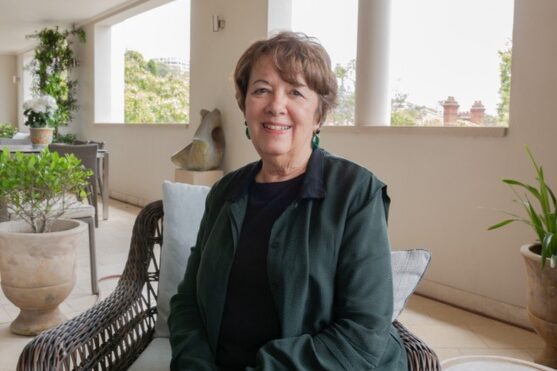‘Great example of female-led philanthropy’: Paula McLean’s $1m gift and the Stella Prize

It must have been a Zoom call for the ages. Philanthropist Paula McLean had left the board of the Stella Prize, Australia’s groundbreaking literary award for female writers, at the start of 2021. Later that year, board members informed her that they were planning to use the organisation’s 10-year anniversary celebrations to try to secure the remaining $2 million needed to endow the prize money in perpetuity. It was a bold target and they only had 10 months to achieve it.
This story was first published in the hardcopy edition of Inspiring Stories of Giving volume 1 in October 2023.
In 2016, Paula had worked with another major donor to kickstart the endowment idea, and during the next three years, the Stella Forever fund reached $1 million. As a board member and Deputy Chair of Stella, Paula said she had developed a deep understanding of the organisation’s work, financials, strategic plan and its community of donors. She also understood that when the COVID crisis hit, the organisation had to prioritise operational fundraising rather than endowment.
And so, she asked to be updated at a Zoom call, still in COVID-distance meeting mode, to hear where they were at. The Stella Chair and head of fundraising outlined their fundraising campaign plan at that Zoom meeting and their commitment to raising another $2 million dollars before prize night 2022.
Paula told them she would pledge the first million dollars as a match.
“I suppose it gave them a bit of a shock,” she says. “I thought it would make it so much easier for them to raise the remaining one million if they could begin with half of the total. It was a wonderful experience. I was very actively involved in the campaign, and on the 10th anniversary Prize Night at the State Library of Victoria, the Stella team was able to announce they had reached their goal and the prize was secured in perpetuity.”
A driver for Paula was hearing that the entire board and executive had donated to the fund, even if they could only afford a small amount. On Prize Night, there were backlit boards with every single endowment donor’s name listed, alphabetically, without the amount they had donated. Paula loved that. “It was a great example of female-led philanthropy. We had an attitude of if not us, who?” she says.
As a self-confessed bookworm, and someone who had worked as an editor and in publishing, literature is close to Paula’s heart while, as a feminist, she could not ignore the Stella Prize’s ideals when it was created.
Philanthropy becomes a much richer experience if you are able to get deeply involved in the organisation.
“When the Stella Award announced what it was doing, I saw this as an incursion into the prize and publishing industry,” she says. “It has gone on to see its authors more equitably represented in the review pages of our newspaper, Stella authors being taught at schools, an increase in sales for the long and shortlisted writers, as well as the winners of the prize. But it has also changed the prize industry. The Miles Franklin Award had only given a very small number of prizes to women in its then 57-year history and, of course, Miles Franklin was a woman. From the moment Stella was announced in 2012, that changed.”
Women have won 10 of the 11 Miles Franklin awards since and including 2012.
Paula is passionate about philanthropists deep diving into causes, not just providing funding. “There is wonderful joy in watching your support translate into social change or to bring about change for how something operates or to help find solutions to very difficult problems in society,” she says. “Also, for me, there was joy in getting deeply involved in the Stella organisation. You learn not just the financial involvement but their history, their difficulties and what drives them.
“Philanthropy becomes a much richer experience if you are able to get deeply involved in the organisation,” she says. “It becomes both a learning opportunity for the donor and a whole new world of friendships and involvement in whichever community you want to support.”